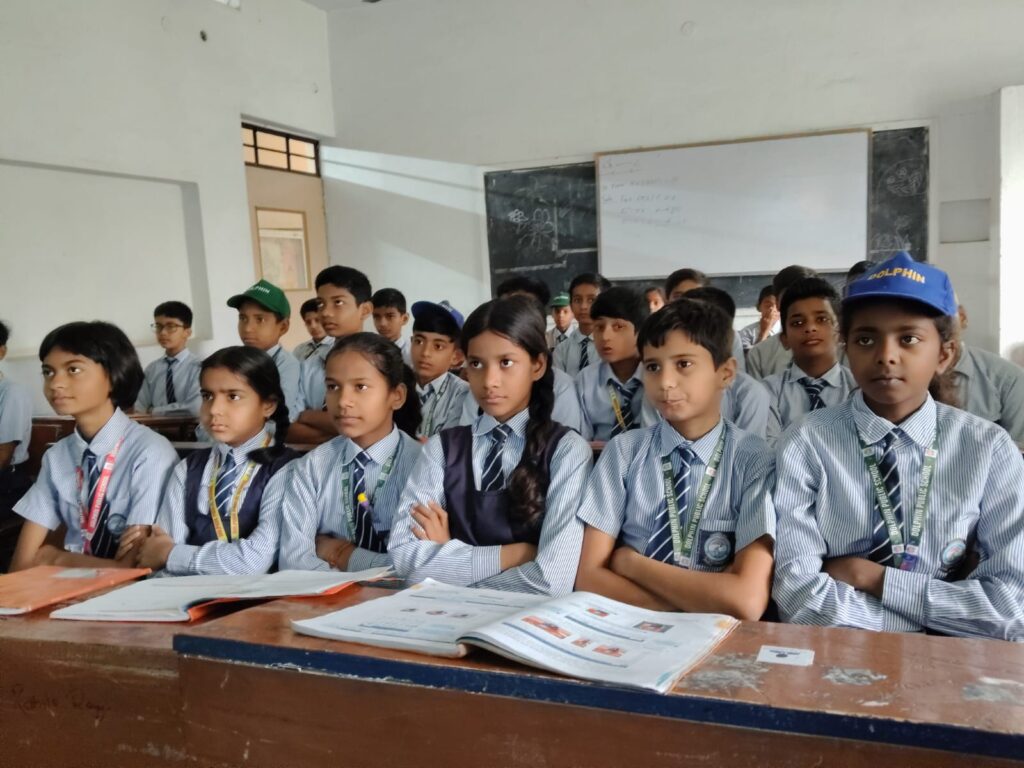
At Dolphin Public School, we believe that true education goes beyond textbooks. It is about nurturing minds that think independently, ask questions, and seek solutions. From the earliest grades, our approach is centered on cultivating critical thinking, curiosity, and creativity in every child.
A Classroom of Questions, Not Just Answers
Our teachers are trained to encourage inquiry-based learning. Instead of giving students the answers, they pose thought-provoking questions that lead students to explore and discover knowledge on their own. For example, during science lessons, rather than explaining a concept directly, we present real-life problems like “Why do plants lean towards sunlight?” or “What happens when we mix certain liquids?” and allow students to experiment and find the answers.
Interactive Teaching Methods
We use a variety of teaching methods that actively engage students in the learning process:
- Project-Based Learning (PBL): Students work in teams to research and solve real-world problems. Whether it’s designing a pollution-free neighborhood or creating a simple machine, these projects require planning, reasoning, and teamwork.
- Think-Pair-Share: This method gives every child the opportunity to think individually, discuss their ideas with a partner, and share their conclusions with the class—building confidence and analytical thinking.
- Mind Mapping and visual thinking: Students create mind maps to connect ideas, helping them see the bigger picture and develop logical structures in their thinking.
Curiosity Corners and Exploration Zones
Our early-grade classrooms are designed with curiosity in mind. “Why” charts, “What if” boards, and exploration zones are set up to stimulate young minds. Children are encouraged to bring their questions, observations, and ideas to class—turning everyday experiences into learning opportunities.
Integrating STEM from the Start
We introduce STEM (Science, Technology, Engineering, and Mathematics) activities at the primary level to instill logical reasoning and problem-solving skills. Activities like building simple circuits, coding with basic robots, or creating mini catapults introduce students to the fundamentals of cause and effect, experimentation, and innovation.
Encouraging Reflection and Independent Thought
We give students time to reflect on what they’ve learned through journals, learning logs, and peer discussions. They’re encouraged to evaluate different viewpoints, justify their ideas, and respectfully debate with their peers. These practices not only build critical thinking but also empathy and open-mindedness.
Role of Teachers as Facilitators
At Dolphin Public School, teachers act as facilitators and mentors, guiding students on their journey of exploration. They observe how students think, pose further challenges, and help them deepen their understanding through dialogue and support.
Final Thoughts
By fostering curiosity, encouraging inquiry, and making room for reflection and experimentation, Dolphin Public School builds a strong foundation for critical thinking. We don’t just teach students what to think—we teach them how to think. That’s the Dolphin difference.
